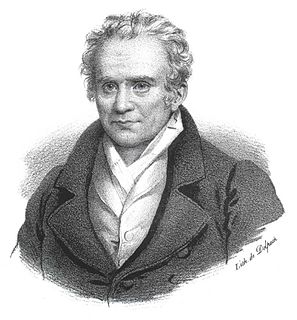Top 455 Derive Quotes & Sayings - Page 8
Explore popular Derive quotes.
Last updated on April 19, 2025.
I believe-and human psychologists, particularly psychoanalysts should test this-that present-day civilized man suffers from insufficient discharge of his aggressive drive. It is more than probable that the evil effects of the human aggressive drives, explained by Sigmund Freud as the results of a special death wish, simply derive from the fact that in prehistoric times intra-specific selection bred into man a measure of aggression drive for which in the social order today he finds no adequate outlet.
We are convinced that the intelligent investor can derive satisfactory results from pricing of either type (market timing or fundamental analysis via price). We are equally sure that if he places his emphasis on timing, in the sense of forecasting, he will end up as a speculator and with a speculator's financial results." And "The speculator's primary interest lies in anticipating and profiting from market fluctuations. The investor's primary interest lies in acquiring and holding suitable securities at suitable prices.
There are two main human sins from which all the others derive: impatience and indolence. It was because of impatience that they were expelled from Paradise; it is because of indolence that they do not return. Yet perhaps there is only one major sin: impatience. Because of impatience they were expelled, because of impatience they do not return.
My advice is to stop trying to "network" in the traditional business sense, and instead just try to build up the number and depth of your friendships, where the friendship itself is its own reward. The more diverse your set of friendships are, the more likely you'll derive both personal and business benefits from your friendship later down the road. You won't know exactly what those benefits will be, but if your friendships are genuine, those benefits will magically appear 2-3 years later down the road.
Theologians will protest that the story of Abraham sacrificing Issac should not be taken as literal fact. And the appropriate response is twofold: first, many, many people even to this day, do take the whole of their Scripture to be literal fact, and they have a great deal of political power over the rest of us, especially in the United States and in the Islamic world. Second, if not of literal fact, how should we take the story? As an alagory? Then an alagory for what? Surely, nothing praiseworthy. As a moral lesson? But what kind of morals could one derive from this appalling story?
I shall argue that it is the capital stock from which we derive satisfaction, not from the additions to it (production) or the subtractions from it (consumption): that consumption, far from being a desideratum, is a deplorable property of the capital stock which necessitates the equally deplorable activity of production: and that the objective of economic policy should not be to maximize consumption or production, but rather to minimize it, i.e. to enable us to maintain our capital stock with as little consumption or production as possible.
In the beginning no power differential existed between male and female. God empowered both with full rights and responsibility to rule outward over all creation, not over each other. As we know all too well, the fall changed everything, precipitating male rule over women and also the rule of some men over other men, a.k.a., patriarchy. Within patriarchy, women no longer derive their value from their Creator, but from men - father, husband, and sons. Within patriarchy, a woman's value is gauged by counting her sons.
The preservation of a free government requires not merely that the metes and bounds which separate each department of power be invariably maintained; but more especially that neither of them be suffered to overleap the great Barrier which defends the rights of the people. The Rulers who are guilty of such an encroachment, exceed the commission from which they derive their authority and are Tyrants. The people who submit to it are governed by laws made neither by themselves nor by an authority derived from them, and are slaves.
As mineralogy constitutes a part of chemistry, it is clear that this arrangement [of minerals] must derive its principles from chemistry. The most perfect mode of arrangement would certainly be to allow bodies to follow each other according to the order of their electro-chemical properties, from the most electro-negative, oxygen, to the most electro-positive, potassium; and to place every compound body according to its most electro-positive ingredient.
We should fix ourselves firmly in the presence of God by conversing all the time with Him...we should feed our soul with a lofty conception of God and from that derive great joy in being his. We should put life in our faith. We should give ourselves utterly to God in pure abandonment, in temporal and spiritual matters alike, and find contentment in the doing of His will,whether he takes us through sufferings or consolations.
...once the cards are dealt we turn them up in turn, and make two piles each, one red, one black; the winner has the biggest pile of red ones. So once the cards are dealt the game is determined, and from any position in it you can derive all others back to the deal and forward to win or draw. ...in relation to the solar system..., the laws are like the rules of an infantile card game.... But in relation to what happens on and inside a planet the laws are, rather, like the rules of chess; the play is seldom determined, though nobody breaks the rules.
Daniel's message of hope and help is still the good news of God's grace. We call it the gospel today. It still has the power to impact lives and transform cultures. Paul referred to the gospel as the "power of God" [Romans 1:16] and chose a word from which we derive our word "dynamite" to describe it. It's this power - not pickets, petitions, protests or politics - that's our only hope today.
Muhammad professed to derive from Heaven, and he has inserted in the Koran, not only a body of religious doctrines, but political maxims, civil and criminal laws, and theories of science. The gospel, on the contrary, only speaks of the general relations of men to God and to each other - beyond which it inculcates and imposes no point of faith. This alone, besides a thousand other reasons, would suffice to prove that the former of these religions will never long predominate in a cultivated and democratic age, whilst the latter is destined to retain its sway at these as at all other periods.
There are two cardinal human sins out of which all others derive, deviate, and dissipate: impatience and lassitude (or perhaps nonchalance). On account of impatience they are driven out of paradise; on account of lassitude or nonchalance they do not return. Perhaps, however, only one main sense of sin is given: impatience. On account of impatience they are driven out, on account of impatience they do not turn back.
When we assume God to be a guiding principle well, sure enough, a god is usually characteristic of a certain system of thought or morality. For instance, take the Christian God, the summum bonum: God is love, love being the highest moral principle; and God is spirit, the spirit being the supreme idea of meaning. All our Christian moral concepts derive from such assumptions, and the supreme essence of all of them is what we call God.
As in forming a political society, each individual contributes some of his rights, in order that he may, from a common stock of rights, derive greater benefits, than he could from merely his own; so, in forming a confederation, each political society should contribute such a share of their rights, as will, from a common stock of these rights, produce the largest quantity of benefits for them.
When you want to organize knowledge. you will be careful to base the classification upon essential qualities. You will thus derive classes in which the members have the greatest amount of resemblance to one another and the greatest amount of difference from the members of other classes. But suppose that, instead of organizing knowledge, you set out to organize ignorance and prejudice. You will then do precisely the opposite.You will keep the classification vague and flexible, so that it can be made to include just whatever individuals you choose.
Descriptive geometry has two objects: the first is to establish methods to represent on drawing paper which has only two dimensions,-namely, length and width,-all solids of nature which have three dimensions,-length, width, and depth,-provided, however, that these solids are capable of rigorous definition.
The second object is to furnish means to recognize accordingly an exact description of the forms of solids and to derive thereby all truths which result from their forms and their respective positions.
To me, then, true criticism consists in trying to find out the intrinsic worth of the thing itself, and not in attributing a quality to that thing. You attribute a quality to an environment, to an experience, only when you want to derive something from it, when you want to gain or to have power or happiness. Now this destroys true criticism. Your desire is perverted through attributing values, and therefore you cannot see clearly. Instead of trying to see the flower in its original and entire beauty, you look at it through coloured glasses, and therefore you can never see it as it is.
My activities have never had anything to do with the idea of becoming famous or achieving success. I have always been concerned with getting people to listen to me. In everything I do ... my aim is to make people listen. I want to communicate the things that I love and in which I believe, because I think that people can derive a general benefit from them. What I really want is success in a philosophical sense: I want people to grasp something of the ideas and hopes which I express in painting.
A man asked Muhammad what was the mark whereby he might know the reality of his faith. Muhammad said, 'If thou derive pleasure from the good which thou hast performed and thou be grieved for the evil which thou hast committed, thou art a true believer.' The man said. 'In what doth a fault really consist' Muhammad said, 'when action pricketh thy conscience, forsake it.'
perhaps I possess a certain Midwestern sensibility that I inherited from my mother and her parents, a sensibility that Warren Buffet seems to share: that at a certain point one has enough, that you can derive as much pleasure from a Picasso hanging in a museum as from one that's hanging in your den, that you can get an awfully good meal in a restaurant for less than twenty dollars, and that once your drapes cost more than the average American's yearly salary, then you can afford to pay a bit more in taxes.
Beethoven and Wagner for many years wrung our hearts. But now we are sated with them and derive much greater pleasure from ideally combining the noise of streetcars, internal-combustion engines, automobiles, and bust crowds than from rehearsing, for example, the 'Eroica' or the 'Pastorale'...away! les ust be gone, since we shall not much longer succeed in restraining a desire to create a new musical realism by a generous distribution of sonorous blows and slaps, leaping numbly over violins, pianofortes, contrabasses, and groaning organs, Away!
Read Becoming a Writer by Dorothea Brande. Then do what it says, including the tasks you think are impossible. You will particularly hate the advice to write first thing in the morning, but if you can manage it, it might well be the best thing you ever do for yourself. This book is about becoming a writer from the inside out. Many later advice manuals derive from it. You don't really need any others, though if you want to boost your confidence, "how to" books seldom do any harm. You can kick-start a whole book with some little writing exercise.
As my friend Jeremy Gilbert-Rolfe has argued persuasively, there is an element of positivity in the visible world, and in color particularly, that totally eludes the historicity of language, with its protocols of absence and polarity. The color red, as an attribute of the world, is always there. It is something other than the absence of yellow and blue--and, thus, when that red becomes less red, it becomes more one or the other. It never exists in a linguistic condition of degradation or excess that must necessarily derive from our expectations.
You must live in the present, launch yourself on every wave, find your eternity in each moment. Fools stand on their island opportunities and look toward another land. There is no other land; there is no other life but this, or the like of this. I wish to live ever as to derive my satisfactions and inspirations from the commonest events, everyday phenomena, so that what my senses hourly perceive, my daily walk, the conversation of my neighbors, may inspire me, and I may dream of no heaven but that which lies about me.
it was the United States which first established general suffrage for men upon the two principles that 'taxation without representation is tyranny' and that governments to be just should 'derive their consent from the governed.' The unanswerable logic of these two principles is responsible for the extension of suffrage to men and women the world over. In the United States, however, women are still taxed without 'representation' and still live under a government to which they have given no 'consent.
How is it to be explained that something inside me revolts against the playing of obvious moves? Perhaps we may perceive the underlying reason in the fact that I derive satisfaction from seeking to reveal the concealed meaning of a position by means of maneuvering play and therefore I do not wish to see this satisfaction curtailed by a banal, more or less fortuitous decision. Naturally, this phenomenon is played out beneath the threshold of consciousness. The waking consciousness will, of course, in each individual case, give preference to the more rapid means of deciding the game.
Jesus doesn't say, "The religion founded in my name is the way, the truth, and the life, [and] what people say about me is the way." "Our way of worship, the Christian structure, is not the way," [he would say,] "I am. I am. If you want to know what life is all about, what it's supposed to be, where it's supposed to go, where it's supposed to derive its strength from, don't look at anything people say about me. Don't look at the faith that's been created. Look at my life, which is a life ultimately of sacrificial love."
We should remember that the Declaration of Independence is not merely a historical document. It is an explicit recognition that our rights derive not from the King of England, not from the judiciary, not from government at all, but from God. The keystone of our system of popular sovereignty is the recognition, as the Declaration acknowledges, that 'all men are created equal' and 'endowed by their Creator with certain unalienable Rights.' Religion and God are no alien to our system of government, they're integral to it.
Two things, Christian reader, particularly excite the will of man to good. A principle of justice is one, the other the profit we may derive therefrom. All wise men, therefore, agree that justice and profit are the two most powerful inducements to move our wills to any undertaking. Now, though men seek profit more frequently than justice, yet justice is in itself more powerful.
It was one time when people thought the value of the fine structure constant was important. Now of course it's still important, of course, as a practical matter,but we now know that the value it has is a function, that in any fundamental theory you derive the fine structure constant as a function of all sorts of mass ratios and so on and it's not really that fundamental.
The first undeniable reality is that every living thing dies, and the second undeniable reality is that we suffer throughout our lives because we don't understand death. The truth derived from these two points is the importance of clarifying the matter of birth and death. The third undeniable reality is that all of the thoughts and feelings that arise in my head simply arise haphazardly, by chance. And the conclusion we can derive from that is not to hold on to all that comes up in our head. That is what we are doing when we sit zazen.
Happiness is normally the prime search of every rational human being. One way to derive increasing happiness during the year we have just entered is to strive diligently to promote the happiness of others, to think of them first, yourself second. Happiness is the greatest tonic, the greatest elixir, of all. Worry is among the worst poisons. One sensible New Year resolution: I will do my utmost to have consideration for others, to exercise usefulness, to radiate happiness, to conquer worrying over things I cannot possibly remedy.
With reference to the narrative of events, far from permitting myself to derive it from the first source that came to hand, I did not even trust my own impressions, but it rests partly on what I saw myself, partly on what others saw for me, the accuracy of the report always being tried by the most severe and detailed tests possible. My conclusions have cost me some labour from the want of coincidence between accounts of the same occurrences by different eye-witnesses, arising sometimes from imperfect memory, sometimes from undue partiality for one side or the other.

































